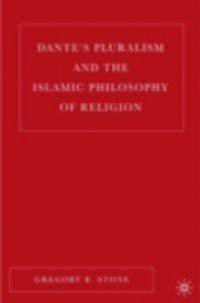This book shows that Dante's project for the establishment of a peaceful global human community founded on religious pluralism is rooted in the Arabo-Islamic philosophical tradition - a tradition exemplified by al-Farabi's declaration that "it is possible that excellent nations and excellent cities exist whose religions differ." Part One offers an approach to Dante's Comedy in the light of al-Farabi's notion of the relation between religion and imagination. Part Two argues that, for Dante, the afterlife is not reserved exclusively for Christians. A key figure throughout is the Muslim philosopher Averroes, whose thinking on the relation between religion and philosophy is a model for Dante's pragmatic understanding of religion. The book poses a challenge to the current orthodoxies of Dante scholarship by offering an alternative to the theological approach that has dominated interpretations of the Comedy for the past half century. It also serves as a general introduction to Dante's thought and will be of interest to readers wishing to explore the Islamic roots of Western values.

